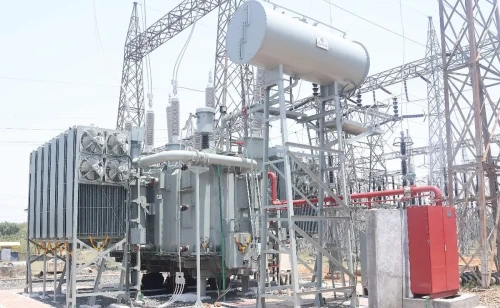
RWAs Liable To Pay GST
RWAs Liable To Pay GST For Over-Charging Electricity Tariff From Flat Owners
RWAs liable to pay 18 GST on electricity bills if flat possessors charged further than tariff by discoms
New Delhi
Real estate inventors and RWAs will be liable to pay 18 per cent GST on electricity bills if they charge from flat possessors more than the power tariff specified by Discoms. The Central Board of Indirect levies and Customs( CBIC) has issued a explanation on the connection of GST on payment of electricity charges entered by real estate companies, promenades, field drivers etc from their lodgers inhabitants. As per the explanation, where electricity is supplied by the real estate possessors, resident weal associations( RWAs), real estate inventors etc as a pure agent, it'll not form a part of the value of their force.
It further said where they charge for electricity on an factual base that is, they charge the same quantum for electricity from their lodgers or inhabitants as charged by the state electricity boards or Discoms, they will be supposed to be acting as ‘ pure agent ’ for this force, and hence GST won't be levied. The CBIC explanation came after dubieties were raised on the connection of GST on the electricity force by real estate companies,
promenades, field drivers etc to their lodgers or inhabitants. It's clarified that whenever electricity is being supplied whisked with renting of irremovable property and/ or conservation of demesne, as the case may be, it forms a part of the compound force and shall be tested consequently.
It's clarified that whenever electricity is being supplied whisked with renting of irremovable property and/ or conservation of demesne, as the case may be, it forms a part of the compound force and shall be tested consequently. “ Indeed if electricity is billed independently, the inventories will constitute a compound force, and thus, the rate of the top force i.e. GST rate on renting of irremovable property and/ or conservation of premise, as the case may be, would be applicable, ” the CBIC said.
still, where the electricity is supplied by the real estate possessors, RWAs, real estate inventors etc as a ‘ pure agent ’, it'll not be considered as a force, and hence no duty will be levied, it added. AMRG & Associates Senior Partner Rajat Mohan said the CBIC has handed explanation regarding the duty treatment of electricity force when whisked with the reimbursement of irremovable property and/ or conservation of demesne. “ In similar cases, this arrangement is considered a compound force and is subject to a duty rate of 18 per cent. It's important to note that billing for electricity independently won't neutralise the duty liability, ” Mohan said. still, when electricity is supplied by inventors and RWAs in the capacity of a “ pure agent, ” it'll be pure from taxation. “ It's worth mentioning that this explanation may not offer relief to every taxpayer, as the conditions specified in the ‘ pure agent ’ rules are relatively strict. also, the detailed breakdown of colorful factors within electricity bills, especially in a large apartment community setting, can be complex and grueling , ” Mohan added. EY Partner Saurabh Agarwal said the recent explanation issued by the CBIC has raised significant enterprises within the real estate sector.
“ Going forward, the said explanation may lead to an increase in the rental cost, as landlords may factor the GST cost on electricity when determining parcel rental quantities, ” Agarwal said. In cases where real estate companies convert high- pressure lines to low- pressure lines and charge advanced rates due to transmission loss, the counteraccusations of this explanation remain a point of concern.
“ This explanation provides the duty department with a base to address former issues and potentially issue new notices to landlords who haven't charged GST on electricity remitments, ” Mr Agarwal added.

